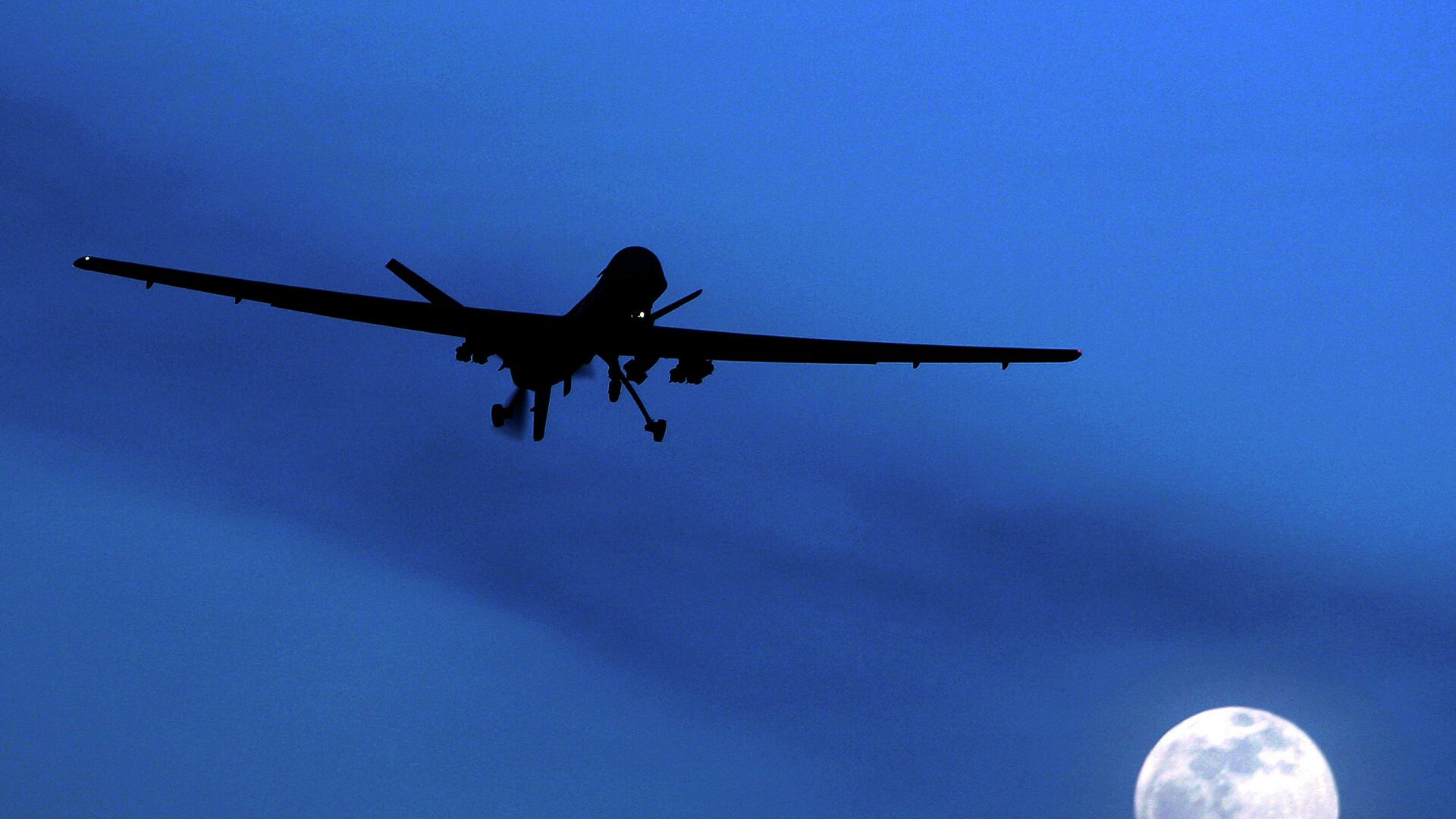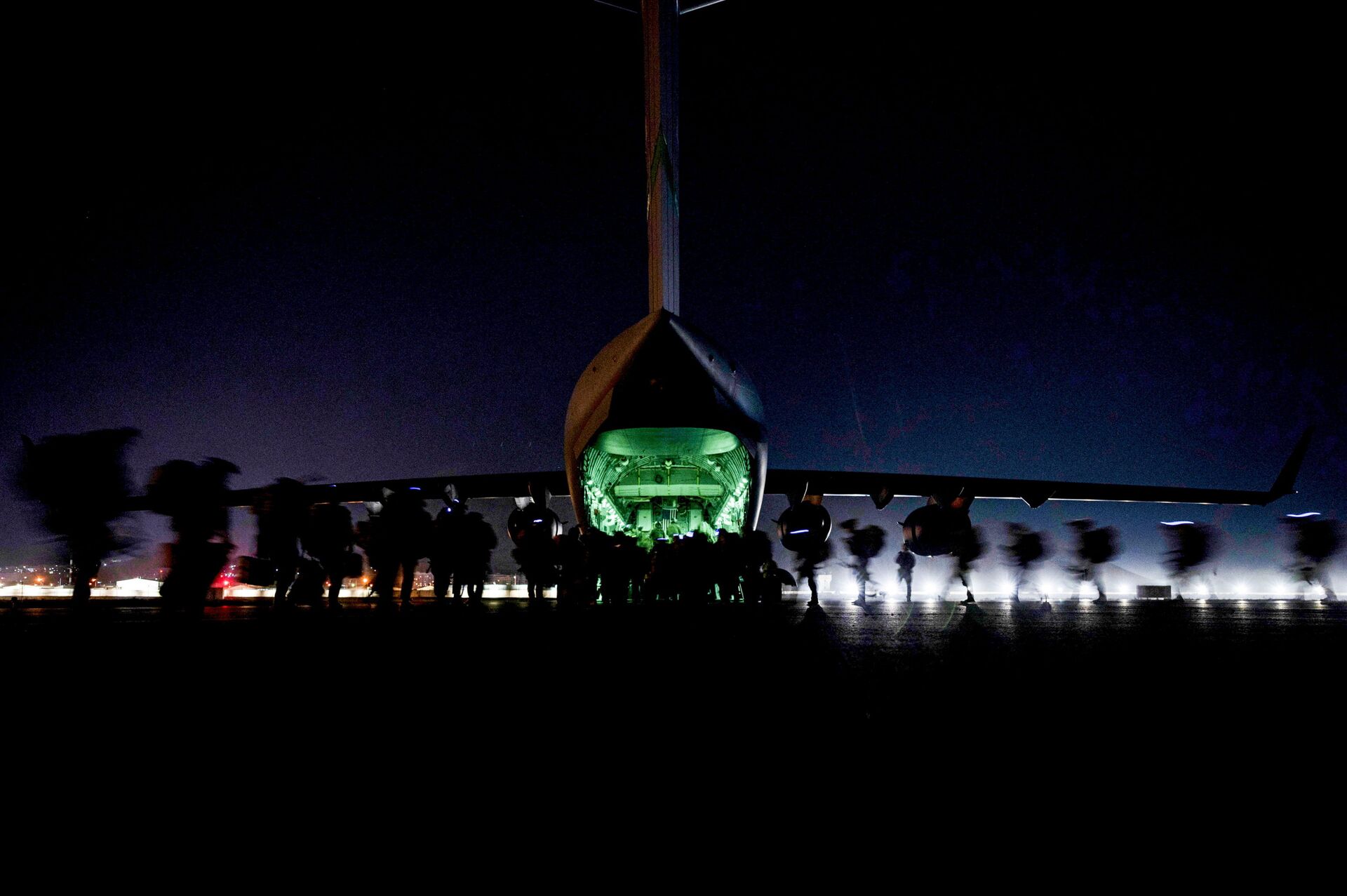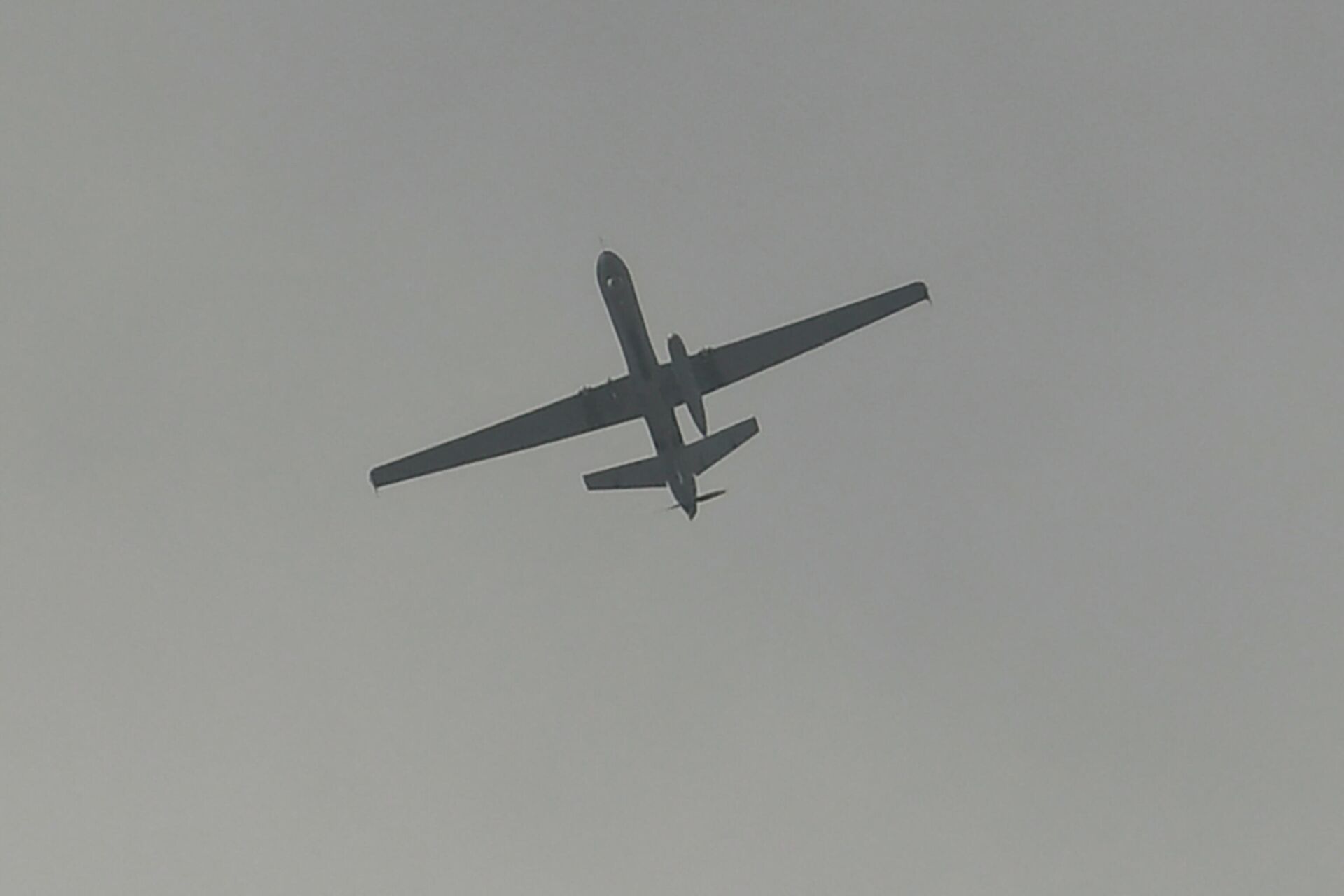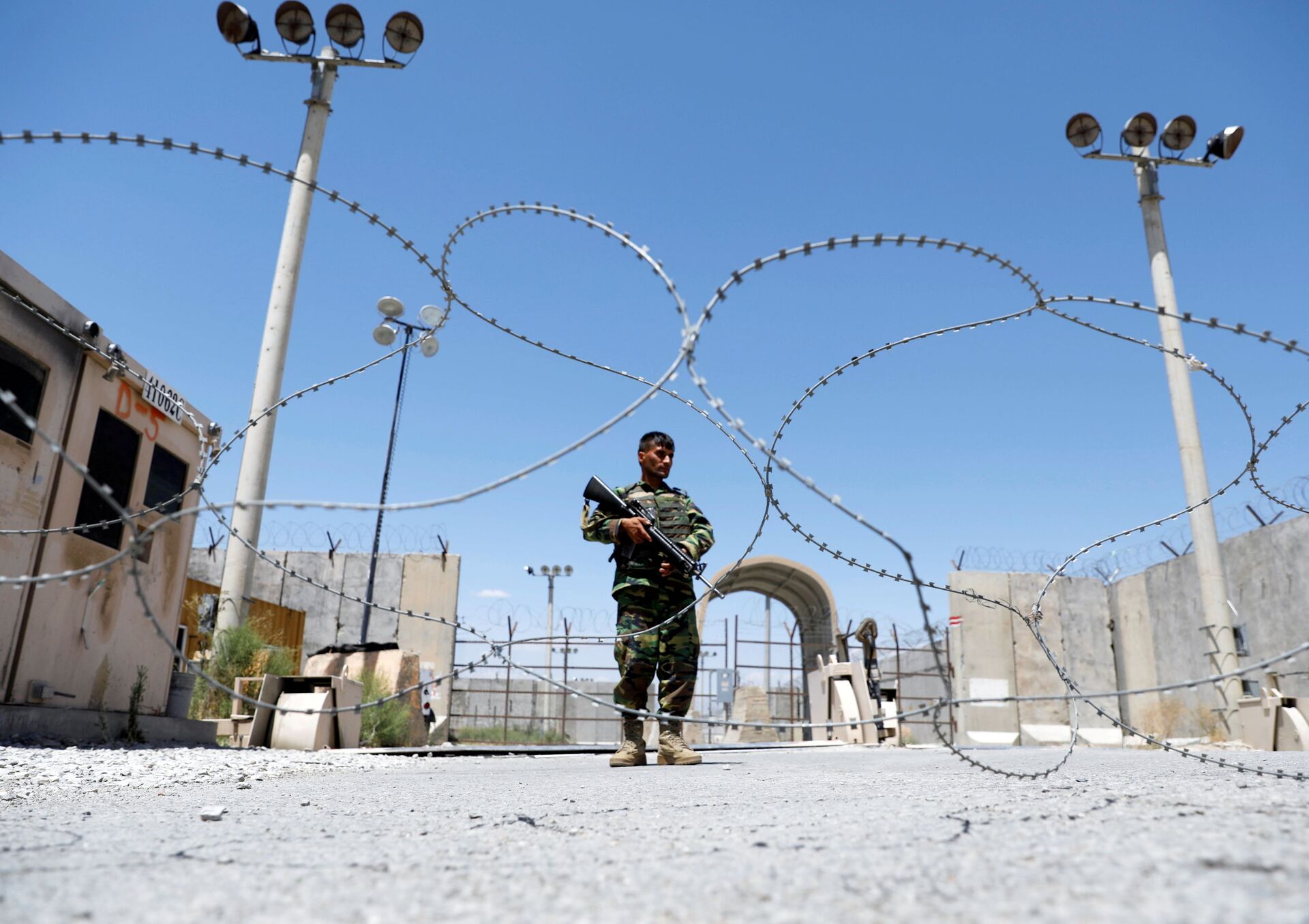US Reportedly in Talks to Formalise Use of Pakistan's Airspace For Over-the-Horizon Afghan Ops
10:52 GMT 23.10.2021 (Updated: 10:39 GMT 19.07.2022)

© AP Photo / Kirsty Wigglesworth, File
Subscribe
Ahead of the rapid Afghan pullout by US forces, President Joe Biden had said that Washington would develop a “counterterrorism over-the-horizon capability” in the South Asian country, even though its troops would not be present on its territory, to “act quickly and decisively if needed”.
The Biden administration is close to securing a formal agreement to use Pakistan's airspace for military and intelligence operations in Afghanistan, according to sources cited by CNN. The information was said to have been shared at a classified briefing with members of Congress on 22 October.
Pakistan had ostensibly expressed a desire to sign a Memorandum of Understanding (MOU) with the US government over the matter, in exchange for assistance with its own counterterrorism efforts. Furthermore, it is suggested that Islamabad would be offered Washington’s help in managing the volatile relationship with India.
The agreement was reportedly discussed when US officials visited Pakistan. Negotiations on the issue are said to be ongoing, with the terms still being hammered out, added the report. There has been no official comment yet on the CNN report from the Pentagon, US State Department or Pakistan.
Pakistan will "absolutely not" allow the CIA to use bases on its soil for cross-border counterterrorism missions after U.S. forces withdraw from Afghanistan, Prime Minister Imran Khan tells @jonathanvswan in a must-see interview airing Sunday. https://t.co/fdXQybfAIb
— Zach Basu (@zacharybasu) June 18, 2021
In June, during Pakistani Prime Minister Imran Khan's interview with Jonathan Swan of HBO Axios, Islamabad reiterated its stance on the use of military bases by Washington. When asked whether Pakistan could grant the Central Intelligence Agency (CIA) access to military bases, as was the case during the government of Pervez Musharraf, to “conduct cross border counter-terrorism missions”, PM Imran Khan responded by saying “Absolutely not.”
Options for Over-the-Horizon Operations
After the Joe Biden administration completed its abrupt troop pullout and evacuation from Afghanistan in late August, which saw the Taliban* Islamist group seize control of the country, the White House has been faced with the challenge of ensuring continued counterterrorism operations against Daesh*, al-Qaeda* and other adversaries in Afghanistan.
For the first time in two decades Washington no longer has on-the-ground presence in the war-torn country. Furthermore, the US State Department plans to resume regular evacuation flights out of Afghanistan "as soon as we have the right combination of documentation and logistics", a senior department official was cited by The Wall Street Journal as saying.

U.S. Soldiers, assigned to the 82nd Airborne Division, prepare to board a U.S. Air Force C-17 Globemaster III aircraft to leave Hamid Karzai International Airport in Kabul, Afghanistan August 30, 2021
© REUTERS / US ARMY
It is expected that additional flights would allow the airlifting of some Afghan special immigration visa applicants and remaining American citizens from the South Asian country and "will require coordination with the Taliban and other governments," it was added, with the State Department "still working through arrangements with neighbouring countries."
Accordingly, the formalised air corridor through Pakistan to Afghanistan might offer a welcome option. Currently, the US carries out over-the-horizon operations from bases situated in the Middle East, such as in Qatar and the United Arab Emirates, with drones reaching Afghanistan after flying around Iran and through Pakistani air space.

A drone flies over the airport in Kabul on August 31, 2021. - The US military announced it has completed its withdrawal from Afghanistan after a brutal 20-year war -- one that started and ended with the hardline Islamist Taliban in power, despite billions of dollars spent trying to rebuild the conflict-wracked country.
© AAMIR QURESHI
The administration of US President Joe Biden has been considering options that would cut down on flight duration and boost effectiveness. The commander of US Central Command, Gen. Frank McKenzie, earlier deplored the fact that while he still had "the ability to look into Afghanistan," it was "limited."
Amid the scramble for “options”, ex-Soviet Uzbekistan and Tajikistan have been on the US radar. However, the sources cited in the report were quoted as saying, "Both are long shots… likely pipe dreams due to needing Putin's blessing," in a reference to the Russian President.

An Afghan National Army soldier stands guard at the gate of Bagram U.S. air base, on the day the last of American troops vacated it, Parwan province, Afghanistan July 2, 2021.
© REUTERS / Mohammad Ismail
Back in July, before the pullout of US troops from Afghanistan, Biden had pledged the US would maintain ability to operate in the country.
"We are developing a counterterrorism over-the-horizon capability that will allow us to keep our eyes firmly fixed on any direct threats to the United States in the region, and act quickly and decisively if needed," he said on 8 July.
After the Senate Armed Services Committee received a classified briefing on security in Afghanistan and south and central Asia, on 21 October Sen. Jim Inhofe (R-OK), a Ranking Member, said the US was "in a worse place to understand and track the terrorist threats coming from Afghanistan."
Inhofe added that the US "is now less safe than before Biden's disastrous decision to unconditionally and entirely withdraw from Afghanistan." The CNN report cited a defence official as saying that the US maintains “ongoing ISR (intelligence, surveillance and reconnaissance) capabilities as needed to support the over-the-horizon and counter-terrorism mission requirements."


